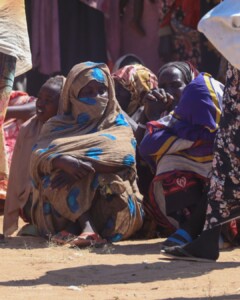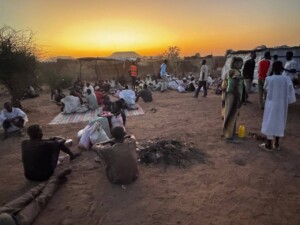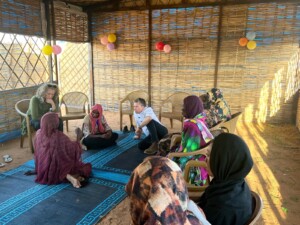Disease, malaria rife in Sudan amid medicine, healthcare shortages
Reports are reaching Radio Dabanga from various parts of Sudan of a rise in water- and mosquito-borne diseases. Reactions to alleged mining-related toxins have also been reported.
 Aedes aegypti, the principal mosquito vector of Dengue viruses (vectorbase.org)
Aedes aegypti, the principal mosquito vector of Dengue viruses (vectorbase.org)
Reports are reaching Radio Dabanga from various parts of Sudan of a rise in water- and mosquito-borne diseases. Reactions to alleged mining-related toxins have also been reported.
In Talodi in South Kordofan, five cases were reported of allergies, decomposition of the skin, diarrhoea, and vomiting due to exposure to unknown materials belonging to one of the companies working in the field of gold mining in the town.
Environmental protection activist Khalid Mohamed told Radio Dabanga that the company supplied its own materials to the El Laffa mine on Sunday and contracted five people from the town to unload the materials from the vehicle, but the material caused them allergic reactions during contact and carrying.
He pointed out that the injured were referred to Khartoum for treatment on Monday.
West Kordofan
On Monday, dozens of residents of Babanousa in West Kordofan staged a vigil in front of locality the buildings calling for better basic services in the town.
The protesters carried out their vigil holding banners demanding services and raised a memo to the locality and state authorities demanding that the problem of electricity and drinking water shortages be radically solved, in addition to provision of qualified health staff and an independent insurance, beside the opening of health centres in the districts.
The protesters also demanded the inauguration of El Fula-Babanousa road and the review of the contracts of Ayat Roads, in addition to the dissolution of local service committees and replacing them by new district committees.
They gave the authorities 72 hours to respond in practice to their demands.
White Nile State
Activists in Ed Duweim in White Nile state, staged a protest vigil in front of the hospital’s gate, demanding to upgrade the medical services.
The activists said that the hospital is suffering of a terrible deterioration in the infrastructure and lack of medical equipment and qualified medical staff.
The protesters pointed to the death of one of the patients during the vigil due to delayed blood transfusion to the patient due to lack of blood transfusion tube.
Darfur
Many of the displaced people living in Darfur camps complain of the spread of diseases such as malaria, typhoid, and diarrhoea amid a lack of medicines and high prices.
They attributed this to the spread of stagnant water ponds, flies and mosquitoes, collapse of a large number of latrines, lack of spraying of houses with pesticides and the lack of mosquito nets.
They appealed to the authorities and humanitarian organisations to provide medicines, mosquito nets, mosquito control, and clean the water ponds.
Omdurman
Also northern districts of Omdurman, especially in El Iskan and other peripheral areas, witnessed cases of diarrhoea, fevers, and nausea among children.
On Monday, the Sudanese Ministry of Health recorded an increase in the incidence of malaria by 10 percent in 13 states compared to the previous year, and confirmed that new areas have been affected with floods and torrents in River Nile state.
Radio Dabanga’s editorial independence means that we can continue to provide factual updates about political developments to Sudanese and international actors, educate people about how to avoid outbreaks of infectious diseases, and provide a window to the world for those in all corners of Sudan. Support Radio Dabanga for as little as €2.50, the equivalent of a cup of coffee.












 and then
and then